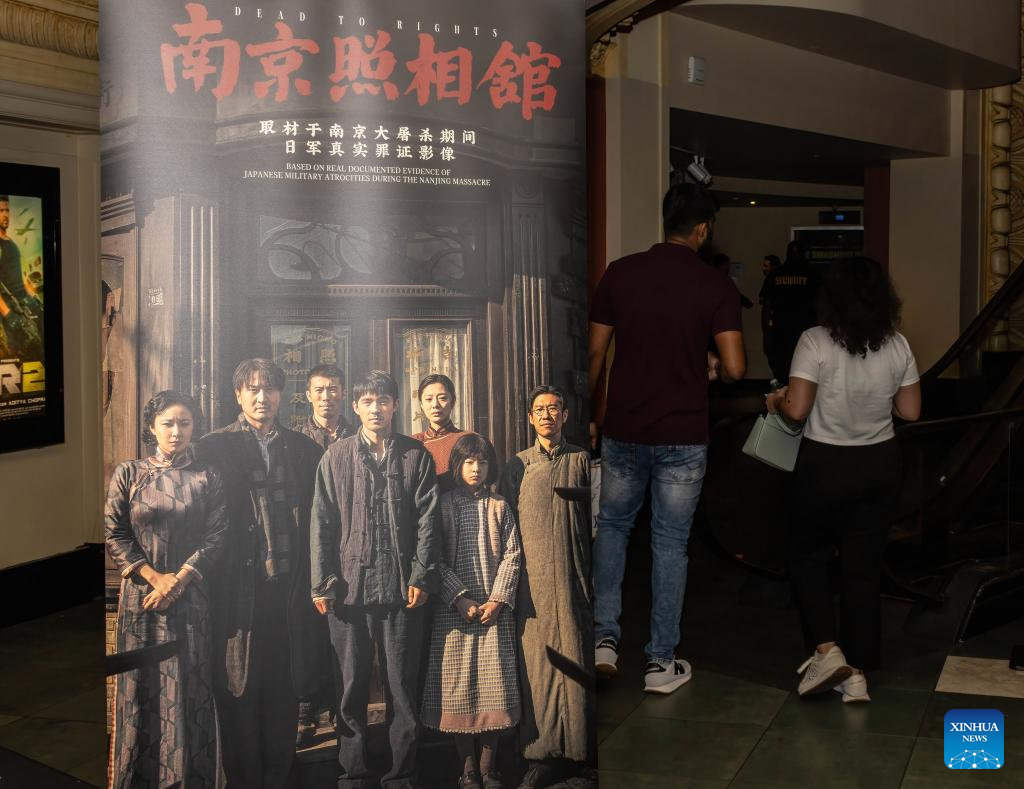
Moviegoers walk by a poster of the movie Dead To Rights at a theater in New York, the United States, on Aug. 15, 2025. (Photo by Winston Zhou/Xinhua)
by Xinhua writers Shi Chun, Liu Yanan
NEW YORK, Aug. 17 (Xinhua) -- Chinese historical film Dead to Rights has hit screens in major U.S. cities, resonating with audiences as it revisits one of World War II's darkest chapters -- a tragedy often absent from Western textbooks.
Set during the 1937 Nanjing Massacre, the film is based on documented events and follows a group of Chinese civilians who took refuge in a photography studio, risking their lives to preserve evidence of the atrocities committed by the Japanese army.
"It's absolutely heartbreaking to even imagine these things happening, and how they were able to get away with it," said Isabelle Young, an 18-year-old moviegoer.
The massacre remains one of the bloodiest atrocities of Japan's invasion of China from 1931 to 1945. More than 300,000 civilians and disarmed soldiers were killed, and countless women were raped during the six weeks following the Japanese capture of Nanjing.
"A lot of people in America -- like people my age -- don't know about the Nanjing Massacre because schools don't teach them," Young said. "I think a lot of textbooks get overwhelmed by what the Germans did in World War II. No one really talks about what the Japanese did to China."
For those who deny or downplay the massacre, she added, "It happened, and we can't change anything. We should prevent it from ever occurring again."
Other audience members echoed her sentiments. One viewer, identified only as Tony, described the film as both emotional and powerful.
"We need to have more such films in which every region tells its history, instead of hearing only one voice," he said. "Unfortunately, in a place like America, we only hear about European history and American history."
"The Nanjing Massacre and the suffering of the Chinese people are part of humanity's experience of the war," said James B. Heimowitz, former president of the New York-based non-profit organization China Institute. "In a sense, the film inspired us to think about shared concepts. All of us need to remember and understand this history." ■
